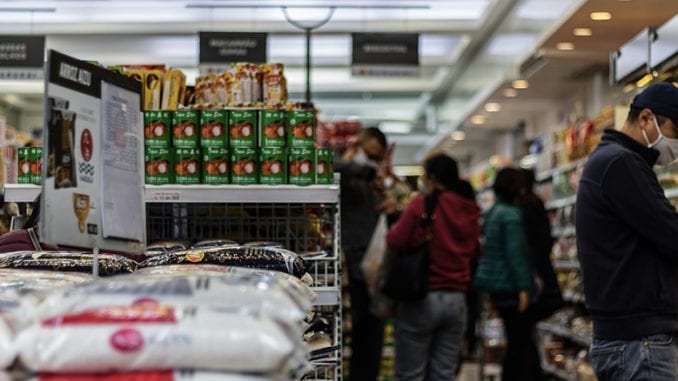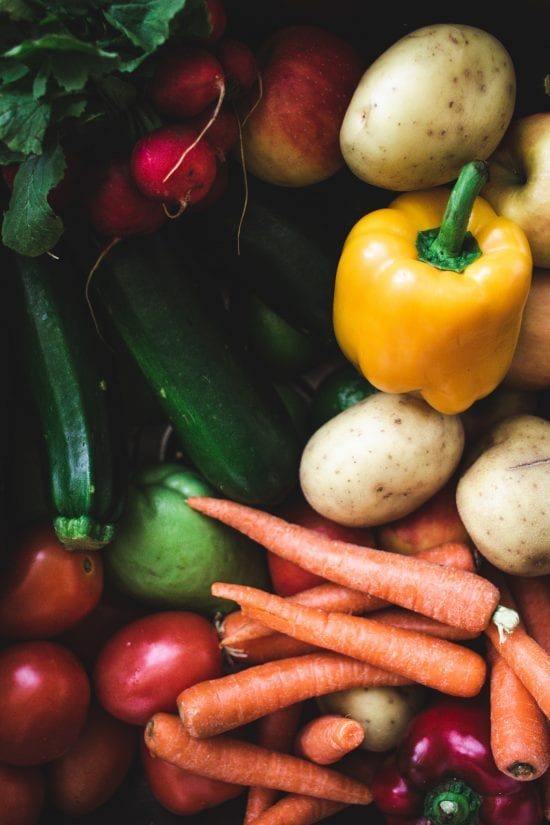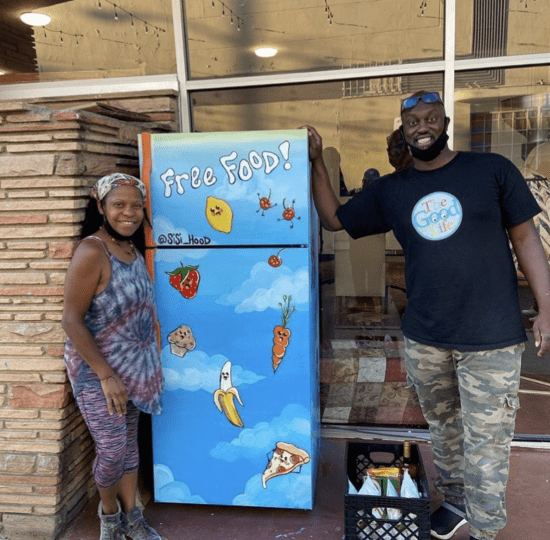
In the wake of COVID-19, cafés in the United States are embracing the power of collective care.
BY EMILY MENESES
SPECIAL TO BARISTA MAGAZINE ONLINE
Cover photo courtesy of Unsplash
It’s been over half a year since COVID-19 was first declared a global pandemic, and though this time has been difficult for everyone, it’s important to recognize that the degree of difficulty has varied from person to person. For some, the virus has been merely an inconvenience; for others, it has uprooted their entire lives. Whether or not you’ve witnessed the virus’s negative economic effects firsthand, the reality is that the U.S. unemployment rate is the highest it’s been since the Great Depression, and many have been left with no way to provide for themselves and their families. In response to the federal government’s lukewarm action, community organizers have begun strategizing ways to provide the relief that people need now.

A key issue they’ve been tackling is the problem of food insecurity—a problem that surprisingly exists in the U.S., considering the fact that American companies are dumping billions of dollars worth of food into landfills every year. One innovative solution has been the use of community fridges: refrigerators run by the people and for the people, where both individuals and businesses can donate food that would have otherwise gone to waste. Most of the fridges are placed outdoors in spaces that can be easily accessed 24/7, but each one requires a host business to provide the electricity that will keep it running. A few cafés that are a part of this are ROCK Coffee House in Los Angeles, Playground Coffee in New York City, and L.A.’s Hot & Cool Café.

Hot & Cool Café in Leimert Park, Los Angeles, is one of many coffee shops around the U.S. stepping up to the plate. When asked what motivated him to host a community fridge, Hot & Cool’s founder Anthony Jolly responded that the café is passionate about the issues of food injustice and inequality, particularly in communities of color. “In hosting the Leimert Park community fridge, our motivation was to support free around-the-clock access and options to anyone in need,” he stated. “Access to food is a human right, and we collectively cannot reserve it for only those with the ability to pay.”
Anthony also drew attention to another crucial issue: food apartheid. Food justice activist Karen Washington created the term “food apartheid” to elaborate on the more commonly used term “food desert,” which refers to a community in which fresh, nutrient-dense foods like fruits and vegetables are difficult to obtain. The term “food apartheid” is necessary in these discussions, because it acknowledges the fact that food deserts are the direct result of systemic racism, which is why people of color are disproportionately affected.
Anthony reflected on his desire to provide healthy and accessible food to his community, which he described to be “inundated and targeted by processed food and a lack of access to healthy food options.” By hosting a community fridge, Anthony has been able to ensure that fresh produce and pantry goods are readily available for anyone who needs them, no questions asked. He shared with us that the fridge has received an enormous amount of support since its launch, with donations and volunteers coming from both within and outside of the community.
Over the past several months, community fridges have taken root in many cities across the country, and local coffee shops, restaurants, and farmers markets have all teamed up to keep them stocked with water, PPE, and fresh, healthy food. While community fridges are just one answer to the growing economic concerns that the nation is facing, they serve as a reminder of the power in collective care. The organizers behind the community fridges emphasize that their work is not about the “haves” giving to the “have nots”; it’s simply about people looking out for one another because that’s human nature.
To learn more about community fridges, check out the information available through In Our Hearts NYC or Los Angeles Community Fridges, or do some quick research to locate a community fridge near you.

ABOUT THE AUTHOR
Emily Joy Meneses is a writer, musician, and cat mom based in Los Angeles. You can regularly find her at Echo Park Lake, drinking a cortado and journaling about astrology, art, Animal Crossing, and her dreams. Explore her poetry, short stories, and music on her website.

